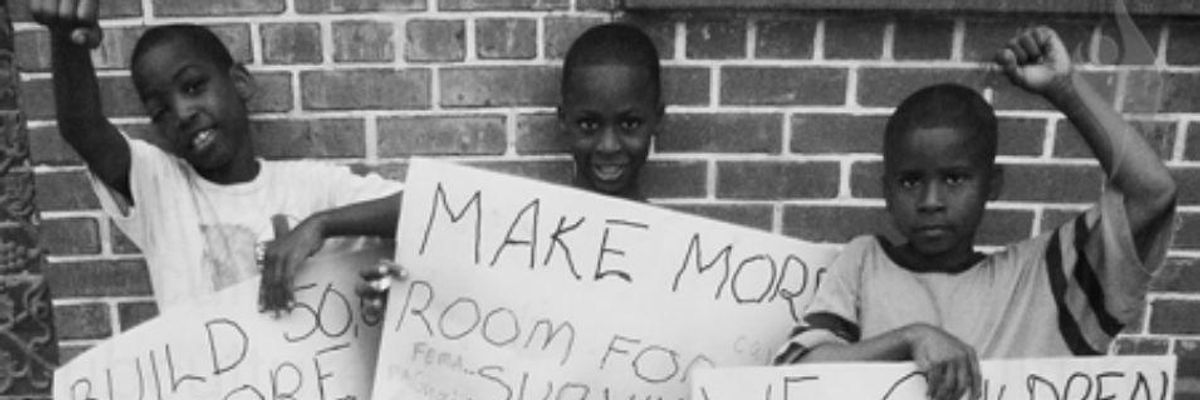Number of people Hurricane Katrina initially displaced from New Orleans, where federal levee failures caused mass flooding: at least 400,000
Percent of white New Orleanians displaced by Katrina who returned to the city within a year: 67
Percent of displaced black New Orleanians who returned in that time: 44
Percent share of New Orleans' population that was African-American in 2005: 66
In 2013: 59
Number fewer African Americans living in New Orleans today than before the storm: 100,000
Number of low-income public housing units that were available in New Orleans before Katrina, almost all of them occupied by African Americans: 5,146
Number of low-income public housing units available in the city today: 1,925
Following the drastic makeover of New Orleans' public schools into mostly independently-run, less-regulated charters, portion of the city's white residents who say the schools have gotten stronger: 2/3
Percent of the city's African-American residents who agree: 55
Of every 10 jobs being added today in the New Orleans metro area, number that are in low-wage industries like tourism, administrative services and retail: 7
Amount by which the median income of white residents of New Orleans increased from 2005 to 2013: $11,000
Amount by which the median income of black New Orleans residents increased over that same period: $2,000
Percent of black men in New Orleans who were unemployed in 2000: 48
Percent of black men in New Orleans who are unemployed today: 52
New Orleans' percent poverty rate in 2005: 17.77
In 2013: 19.31
Percent of black children in New Orleans who lived in poverty in 2005: 44
Percent of black children who live in poverty there today: 50
Portion of white New Orleans residents who believe the city has mostly recovered since Katrina: nearly 4 out of 5
Portion of New Orleans' black residents who say it has not: nearly 3 out of 5
(Click on figure to go to source.)

